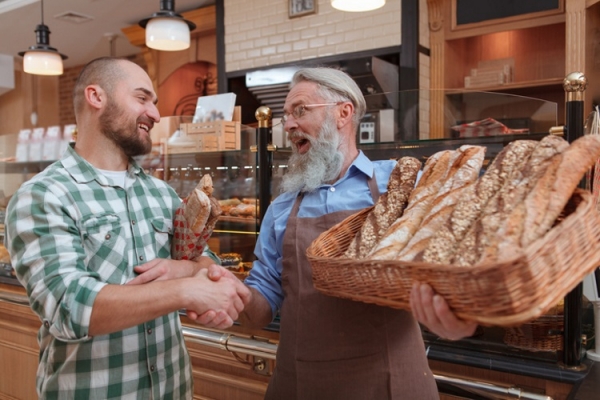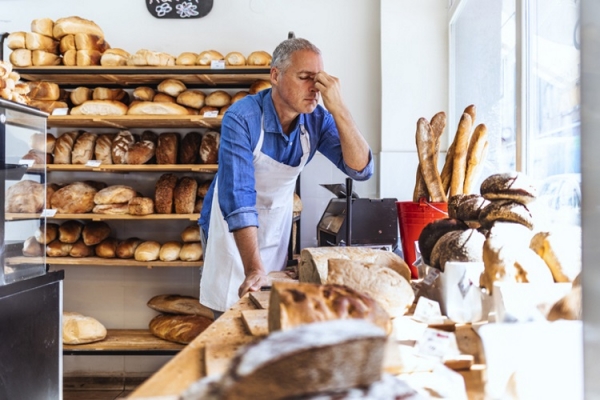While HFSS products still hold a significant market share, the tide is slowly shifting towards healthier non-HFSS items. In the 12 weeks to 19 March 2023, we observed a steady movement of £82 million away from HFSS products within the legislation categories, with £34.4 million of this moving to healthier non-HFSS alternatives. – Kantar
Despite a discernible change in consumer behaviour towards healthier options, the majority of CBA’s members show little concern over the impact of the UK Governments HFSS legislation. In fact, according to Dear, many have noted “they won’t be making any changes.
“As you will know, [the regulations] were due to come into force on 1 January 2023, but back in June 2022, government announced they were delaying the plans until 2024. However, I believe the policy is being delayed further and is now set for October 25.
“The rules around these regulations seem to be changing monthly and as it stands, very few, if any, of our members will be impacted. Our research [among members] suggest that only 3% of them see these regulations as a challenge and the majority won’t be making any changes to their offering.”
Higher up on the sector’s leader board of concerns are the cost-of-living and the death of the High Street.
“It’s difficult times, contending with the cost-of-living increases and ingredients,” Dear told Bakery&Snacks.
The Government is delaying the 9pm watershed ban on TV and online advertising for HFSS foods to 2025, the second time the ban has been pushed back.
However, the restriction of HFSS products by location (store entrances, aisles ends and checkouts) came into force on 1 October 2022, and the regulation by volume price (the promotion of multi-buys such as buy-one-get-one-free) is now set to come into force on 1 October 2023.
“Business rates are always a concern … because if small communities start to fall away and businesses aren’t on the High Street, then that has a big impact on our bakeries.”
That said, Dear contends “the craft bakery sector is currently thriving.”
“Our members and the wider industry have all shown tremendous resilience and innovation and have met the challenges arisen from the war in Ukraine and the subsequent rising energy prices and general inflation head on.
She added, “We regularly survey our members and they’re telling us that bakery customers do recognise the craft bakers skill and continue to visit for their indulgent treats day-to-day. But they are clearly 1686324963 looking for value because everybody is trying as best as they can to mitigate the cost of living crisis for themselves. But 55% of our members believe the demand for low cost goods will continue some months at least.”
However, “the skill that our industry has is sometimes overlooked. They are at the forefront and actually know what customers want.”
Supporting the sector

“Supporting our members is at the heart of what we do, which is why lobbying the Government for better long-term benefits for craft bakers continues to be our top priority,” said Dear.
Her team is currently in the throes of finalising the CBA’s annual Business Day, which, this year is themed ‘Future Proofing Your Business’.
The event – sponsored by the Bako Group, among others – kicks off with the CBA’s 134th Annual General Meeting and the induction of national president Patrick Wilkins and president elect John Foster.
Throughout 2022, CBA was at the forefront of lobbying with the BEIS (Department for Business, Energy and Industrial Strategy) for stricter commercial energy regulations and guaranteed long-term support.
On 1 April, craft bakeries saw support withdrawn under the government’s Energy Support Relief Scheme. The new Energy Bills Discount Scheme (EBDS) now only covers businesses that are deemed to be energy intensive, identified by the company’s Standard Industrial Classification (SIC) code, which the craft sector does not fall within.
“We feel our members are energy intensive industry, but they’re not classified as such, so the majority of members aren’t able to take advantage of that scheme to help them: that’s despite many seeing their energy bills at least 40% higher than they were before the crisis started,” Dear told this site.
“So we’re no further forward with that, but we do have a good relationship with BEIS and Greg Falconer [BEIS deputy director] will be undertaking a question and answer session with our members about the challenges they’re facing, and energy will be one of them.
“When there are areas of concern that are as huge as this, smaller businesses need their voices to be heard and that’s the conversation I’ve had with BEIS. Hopefully, out of this crisis, we as an association have built a better relationship and going forward, when these decisions are being formed, government will remember that artisanal business need to have their voices heard as well.”
Following the Q&A session, Paul Hobbs, principal environmental health officer, Primary Authority, Horsham District Council, will guide members through local regulations; Audrey Deane, technical director, Safer Food Scores, will unpack the important art of food hygiene; Amy North, editor of Bakery&Snacks’ sister publication British Baker, will focus on how members can capitalise on the power of the media; and Jennifer John, MD of Ceres PR, will reveal the results of a recent consumer survey over changing buying habits.
“We’ve undertaken a survey [to find out] what bakery businesses think the public want and what consumers actually do buy,” said Dear.
“It’s been a really positive survey and I think we’re going to be quite surprised about the results.”
The afternoon’s keynote speaker is retail futurist, author and entrepreneur Howard Saunders, who will be “talking our members through retail and hopefully not too choppy waters ahead.”
Getting to grips with ever-changing rules

The CBA will be issuing its 2022 Annual Report at the AGM preceding its Business Day lineup, taking place on Wednesday, 14 June at 30 Euston Square, London, NW1 2FB.
“I am proud of the way the CBA has had the ability to continue to support members, from dealing with an unprecedented number of queries to getting to grips with the ever-changing rules, HR issues, supply problems and much more besides,” said Nick Harris, CBA chair.
“I have also watched with admiration how craft bakers responded to the challenges of the pandemic, Brexit and the rest. There has been fantastic innovation, adaptability, and creativity, coupled with a determination to just get on with the job in hand – all of which I believe means that we are in a strong position ready to face whatever is next.”
The Craft Bakers Association has been the voice of the sector since 1887, working alongside its members to ensure a sustainable future for craft baking.
The association represents approximately 500 bakery businesses in England, Wales and Northern Ireland – from startups to established bakeries – supporting a total of 3,000 shops on the High Street (alongside wholesale companies and specialised confectionery businesses).
Members can also access a host of benefits including health and safety and environmental health advice, online and inhouse training, employment law advice and government lobbying on legislation.
